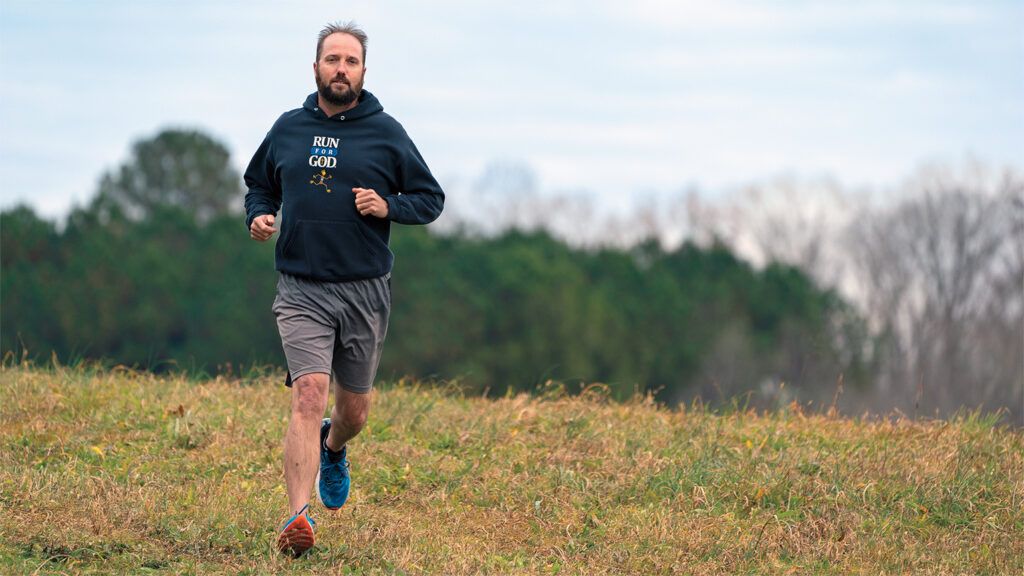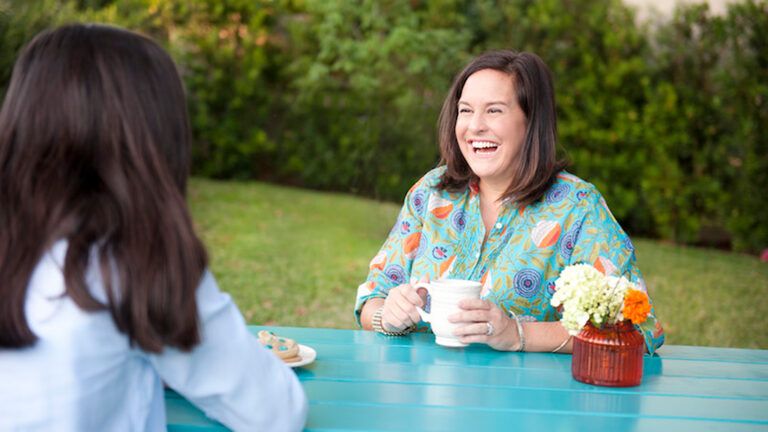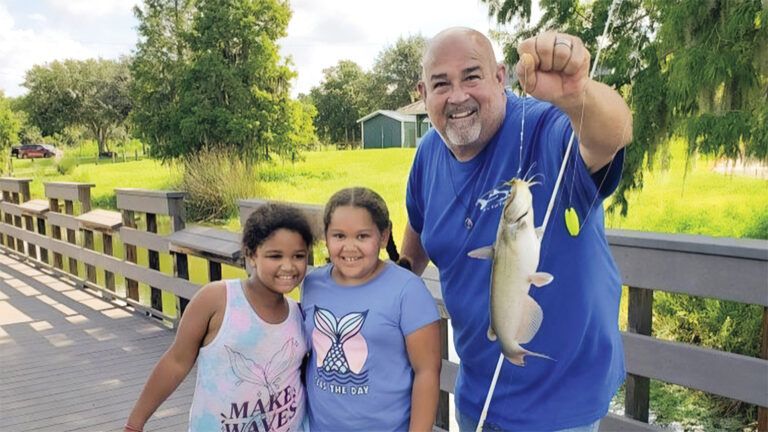There I stood in a small classroom at church, about to make a fool of myself.
I was supposed to be teaching a class about running and faith, a class I’d organized. But I had no idea what to tell the people who’d signed up.
I didn’t know much about what the Bible has to say about exercise. I didn’t know much about the Bible, period.
I was a runner, yes. But that didn’t qualify me to teach this class. Running was my spiritual problem. I ran too much. Focused on it to the exclusion of everything else. Up to now, running seemed to be leading me away from God, not toward him.
So what was I doing here? Why had I organized this class, and what could I possibly say that would help these good people spiritually?
Great questions. I wished I had answers. Stalling for time, I started the class by asking a question of my own.
“What brings you here?” I asked the dozen or so people facing me. “What do you hope to get out of this class?”
What happened next changed the course of my life.
Let me back up and tell you how I got to that moment.
I am not a professional runner. I wasn’t even a particularly athletic kid. I did two sports in high school: golf and bull riding. Really, I just liked to have fun.
My dad built homes. My mom sold insurance. Financially my parents did okay, but my dad had an alcohol problem, which slowly cost him his marriage, his profession and ultimately his home. Disorder and dysfunction were two words I knew well growing up.
Maybe that’s why I took to running in my twenties. It started with a joke. Some buddies and I dared each other to enter the annual Peachtree Road Race, an 10K race in Atlanta on July 4. They say it’s the largest 10K in the world, with about 60,000 runners.
None of us was in shape or had any idea how to train for a race. It was a painful 10 kilometers, let me tell you. But something indescribable happened as I ran the course.
The feelings of anxiety and inadequacy I’d carried from my childhood seemed to fade with each kilometer. An uncanny serenity and focus came over me. Was this what they called the runner’s high? I wanted more of it.
I began running every day. I completed my first marathon in January 2008, just six months after the Peachtree race. Soon I was doing triathlons, then Ironman triathlons, grueling events that combine a 2.4-mile swim with a 112-mile bicycle ride and a 26.2-mile run.
Along the way, I settled into a career building homes just like my dad, married a wonderful woman named Holly and had two boys, Lane and Landon.
You’d never have known about those other parts of my life from talking to me, though. All I cared or talked about was running and triathlons.
“How’re you doing, Mitch?”
“Great, I just beat my personal best time at the triathlon last weekend. Now I’m training for…” Blah, blah, blah.
My day was planned around workouts. The minute I finished a race, I began prepping for the next one. I researched exercise and nutrition techniques to get faster. I was obsessed.
One day, I was chatting with a friend after church. H.R. was 30 years older than me and a runner. I liked that he ran, but what I really admired was H.R.’s faith. He was a plainspoken believer who lived with integrity and called things as he saw them.
I was bragging about my son, who’d just completed his first triathlon at age six. Suddenly H.R. stopped me.
“Mitch, don’t let this become your God,” he said.
I stared at him. What was he talking about? What right did he have to meddle in my faith? Irritated, I wrapped up the conversation, found Holly and the kids and headed home.
I tried to brush off H.R.’s words. Yet each morning, when I laced up and headed out for a run, that simple phrase—don’t let this become your God—wouldn’t leave me alone.
Was there something wrong with my approach to exercise?
I had to admit, my life centered on running. And no amount of racking my brain turned up any obvious connection between improving my time in a marathon and growing closer to God. I thought about running more than I thought about God. Way more.
Why did I love running so much anyway? What was I running toward?
Maybe the better question was, What was I running away from?
Exercise instilled discipline and gave me a feeling of accomplishment, two things in short supply during my dysfunctional childhood.
But if I craved structure and a sense of self-worth, shouldn’t I be getting those things from God? Maybe H.R. was right. Maybe exercise was taking God’s place in my life.
I knew what I had to do. Give up this sport I loved or give it to God.
You hear that a lot, from pastors and such: “Just give it to God.” How was I supposed to put it into practice?
A couple days later, I remembered something. Years ago, when I was starting out as a runner, I’d been doodling during a church service. (Sorry, Pastor.) I drew a funny-looking stick figure running. Next to the stick figure I wrote, “Run for God.” I stuck the paper in my Bible and for some reason filed it in a drawer at home.
I rummaged through my files and found the drawing. I took it to a print shop and had it printed on a dozen T-shirts. I pictured myself wearing the shirt and being forced to explain to people what it meant to run for God.
People did ask about the shirt, especially at church. I told them my story and what H.R. had said to me, that running had become my idol.
“I’m trying to do this thing I love for God instead of myself,” I said.
“Sounds like a subject for a class at church,” someone said.
“Definitely,” I said. “I would take that class.”
“No, I meant you should teach it.”
Me—teach a class? The guy who doodled in church? I didn’t know enough about the Bible to teach anyone about faith!
People kept asking. Finally I went to my pastor for confirmation that I was not qualified. “Sounds like a great class,” he said instead. “When do you want to start?”
I couldn’t argue with that. Holly and I prayed about it. I put up a few signs and talked to some church friends. I tried to make a lesson plan, but all I came up with were vague ideas about the relationship between faith and endurance.
That’s why I stalled for time by asking everyone why they were in class.
A woman named Gaye Coker raised her hand. I braced for a biblical question I was unprepared to answer.
“My husband and I need this class,” she said. “We’re in a rut. We’re both overweight. All we do is work, come home, eat, watch TV and go to bed. We’ve had some parenting challenges, and we’re depressed. We don’t think we can run, but maybe this class will kickstart something.”
Other people told similar stories. No one asked a theological question. Everyone had a spiritual need that they thought exercise might help with.
I didn’t have to be an expert. These people probably knew more about the Bible than I did. All I had to do was be myself, share my story and guide people to a level of exercise they could manage. We would pray and explore Scripture together.
We would run for God.
God can do amazing things when you let him lead.
What happened with that class? First, everyone took up running. We started with walking, then slowly built up to running three times a week. By the time the class was finished, everyone was ready to run a 5K race.
We discovered the Bible actually has quite a lot to say about running. As the book of Hebrews puts it, “Let us run with perseverance the race that is set before us.” There’s more where that came from.
People at our church heard about the class and asked for another one. Other churches in the area soon did the same. I was asked to write a curriculum that other churches could use. I published the curriculum, and soon I had a nonprofit ministry called Run for God that was helping thousands of people around the country learn to run and deepen their faith.
Guess who works for Run for God? Gaye Coker. She went on to run half-marathons, and her husband became a marathoner.
“Running changed my life,” she tells people who sign up for our groups.
It changed mine. Or maybe it’s better to say God changed my life when I turned my love for running over to his care.
Today Run for God has been taught in more than 6,500 communities around the world to more than 200,000 people. Our organization’s small team (my wife, Holly; Gaye; local running legend Dean Thompson; and me) offers programs from beginner to marathon. We are passionate about sharing God’s love through fitness.
A life of faith is indeed a life of endurance. Some days we may find the incredible serenity and focus I remember feeling during the first 10K I ran. Other days, we might struggle to take another step. But with God leading the way, we are sure to finish the race that has been set before us.
* * *
Deepen your faith and your joy of running with Running in Faith—a 52-week devotional for runners, created in partnership with Run for God. Every week, you’ll be encouraged by inspiring stories of ordinary people who have become spiritually and physically fit. Plus, expert tips and observations to help boost your joy of running. Enlightening Scriptures that will guide your steps and draw you closer to God. Penetrating questions to help you reflect on and apply what you discover each week. For a free preview and gift, go to shopguideposts.org/run.






